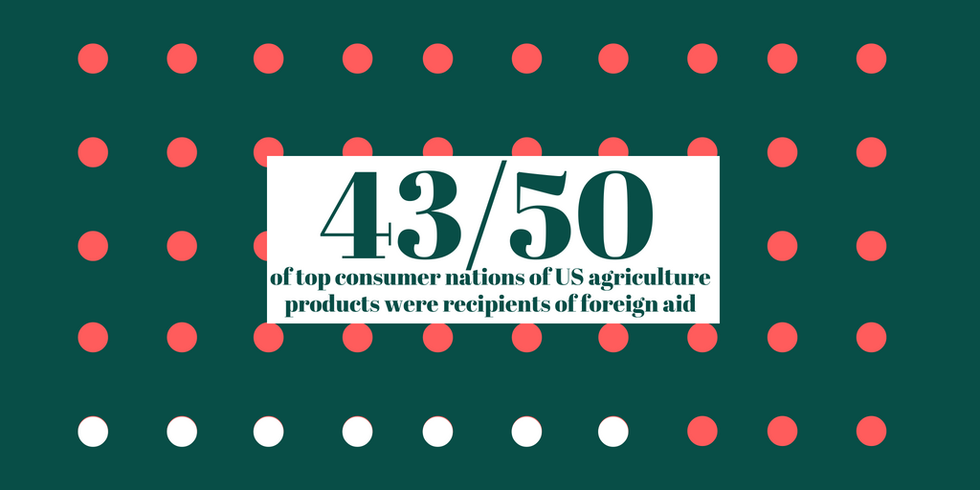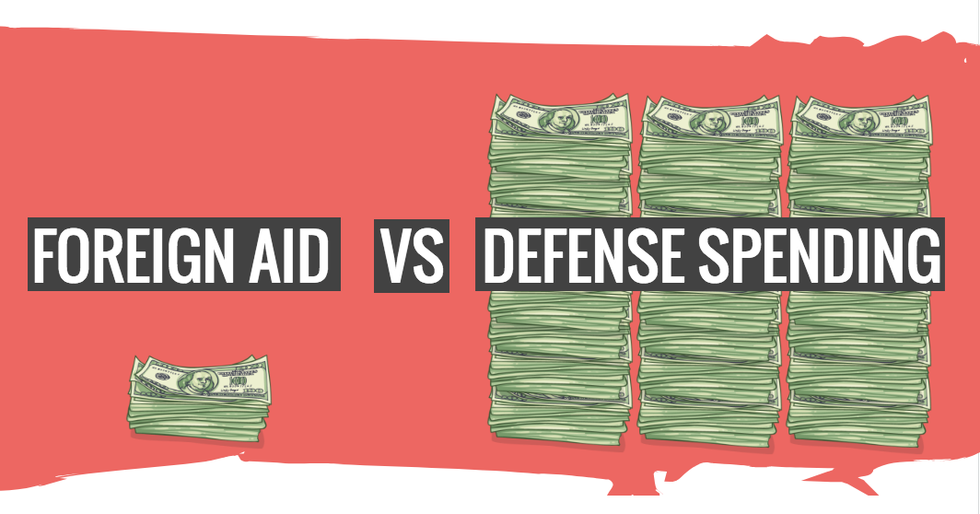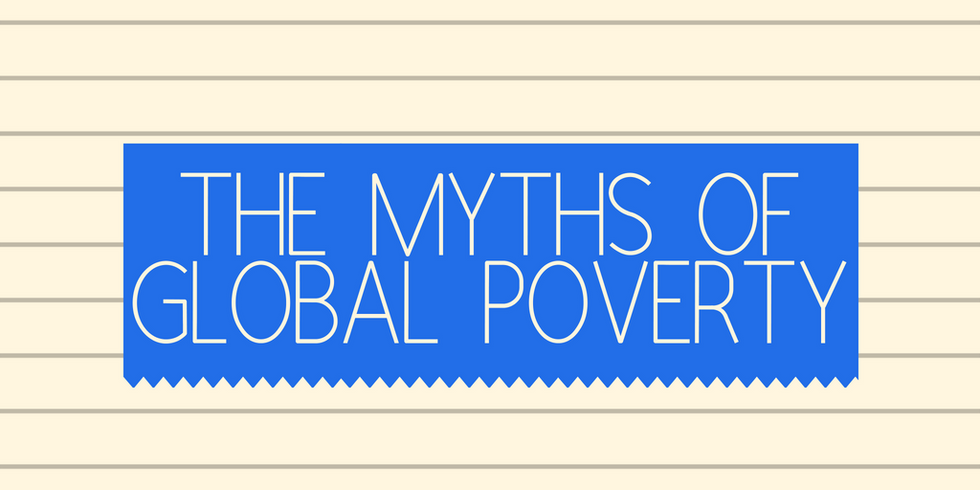Let's Dissect the Myths!
"25% of the United States' annual spending goes to foreign aid"

This is a myth. The average American believes that 25% of our annual spending goes to foreign aid, but in actuality, the United States only allocates 1% of our annual spending on foreign aid, resources such as money or food given from one country to another.
"The United States is doing their part to help end global poverty"

This is a myth. The truth is, the U.N. has a target for each of the richest countries to dedicate 0.7 percent of their Gross National Income to foreign aid. While some countries, like Norway and Sweden, spend over 1 percent of their GNI on foreign aid, The United States doesn't even get close to the U.N. target. The United States spent only 0.19% of their GNI on foreign aid in 2013. This puts the U.S. far below the average contributed by the other wealthiest countries, which was 0.4%.
"Foreign Aid doesn't help the United States"

This is a myth. It turns out that foreign aid is more like an investment than it is like a donation. Once these nations develop enough to lift themselves out of poverty, they buy more and more American products, which helps the U.S. Economy. 43 out of the top 50 nation consumers of American agricultural products used to be foreign aid recipients. 1 out of 5 US jobs is export-based and half of all exports go to developing nations. The most untouched markets are those of the developing nations; therefore, it is only smart to invest in their potential.
"Global poverty helps decrease population, which helps the problem of overpopulation"

This is a myth. People actually have more children when there is more poverty because the death rate for children is higher. Therefore, families try to have more babies because of the high probability their child will unfortunately die. With less poverty, the death rates for children go down, so families have fewer children. Therefore, ending global poverty will also help the issue of overpopulation.
"The only way we can protect ourselves is to spend more money on defense"

This is a myth. When people think of foreign aid, most people believe that it helps people abroad get out of poverty. While that is true, foreign aid does a lot more than just that. When a nation is very poor, it is more vulnerable to terrorist groups and drug trafficking. Therefore, the United States has a history of trying to help developing nations educate their children and give them the tools to escape poverty so they, and The United States, do not have a threat of terrorism. While the U.S. is already spending $639 billion on defense, it would be prudent to invest more money in foreign aid to supplement the work the DOD is doing.
"There isn't anything I can do to help global poverty"

THIS IS A MYTH! There is so much you can do with just your phone. Emailing and calling congress is the simplest way to make a difference. Congressional staffers take note of how many constituents call or email about an issue, and this tally is put into a weekly report given to your congressional leader. So your emails and calls really do count! If you want to email your congressional leaders about a proposed bill that will help our fight against global poverty, go to this link: https://borgenproject.org/action-center/. Simply pick a bill, fill out your name and address, and The Borgen Project will send it for you. If you want your voice to literally be heard, you can choose to call congress. This link will help you find the phone numbers of your congressmen/women: https://borgenproject.org/call-congress/. The great thing about calling congress is, you just have to leave your name, zip code, and message at the tone. So, if you're afraid to talk to people over the phone, you don't have to talk to anyone if you don't want to. If you still feel like you want to do more to help, check out The Borgen Project website (borgenproject.org). This is a wonderful nonprofit organization that works with congress to help pass bills that help fight global poverty. They believe education about global poverty is imperative to solving this problem, so there are many articles on their site for you to educate yourself. You can also donate to help The Borgen Project's efforts, and you can become a volunteer or intern for them! As a marketing intern, I have seen firsthand the good work this organization does, so I highly suggest you check out their website! Share this article with your friends to spread the word about how we all can be doing more to help our neighbors abroad.









































